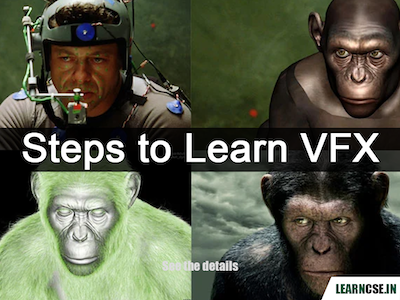You can learn VFX on your own. if it is something you are interested in as a hobby or as a career path, just do it! Start learning.

Yes, you can definitely learn VFX on your own! Many aspiring VFX artists and professionals have started their journey by self-learning and honing their skills through online resources, tutorials, and practice. Here are some steps to help you get started:
- Understand the Basics: Begin by understanding the fundamental concepts of VFX, such as compositing, 3D modeling, animation, and special effects. There are numerous online tutorials and courses that cover the basics of VFX.
- Choose Software: Select a VFX software that aligns with your interests and goals. Popular software options include Autodesk Maya, Adobe After Effects, Nuke, Houdini, and Blender (which is a free and powerful option for 3D modeling and animation).
- Online Resources: There are countless online platforms and websites that offer VFX tutorials and courses. YouTube, Udemy, Pluralsight, and LinkedIn Learning are some popular platforms to find VFX tutorials.
- Practice, Practice, Practice: VFX is a skill-based field, and practice is essential. Work on small projects and exercises to apply what you learn and gain hands-on experience. Start with simple projects and gradually move on to more complex ones as you progress.
- Participate in Online Communities: Join online forums, VFX communities, and social media groups to interact with other learners and professionals. Sharing your work, asking questions, and seeking feedback can be valuable for improving your skills.
- Study VFX Breakdowns: Analyze VFX breakdowns of famous movies and shows. These breakdowns provide insights into how VFX professionals approach and execute their work.
- Learn from Industry Professionals: Attend webinars, workshops, or conferences to learn from industry experts. This can give you valuable insights into the latest techniques and trends in the VFX industry.
- Build a Portfolio: As you progress and create more projects, compile your best work into a portfolio. A portfolio showcases your skills to potential employers or clients and is crucial for landing VFX-related opportunities.
- Stay Updated: VFX is a rapidly evolving field, so keep yourself updated with the latest software updates, techniques, and trends.
Remember that learning VFX on your own requires dedication, practice, and perseverance. It might take time to become proficient, but with continuous learning and effort, you can develop valuable skills in VFX and potentially pursue a career in the field.

